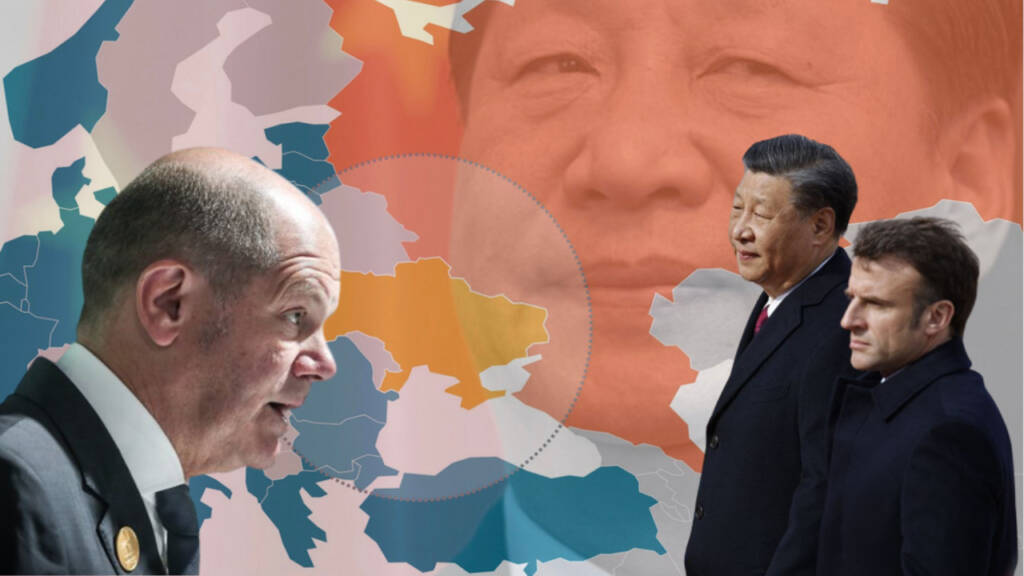Russia Ukraine ceasefire: A few sane countries have been taking significant strides to lay the groundwork for peace agreement between the warring nations. But the kingpin of the EU seems reluctant. Countries like France and China have been trying to end the cycle of violence. Enter Germany. The reluctant protagonist of our story.
As talks of a much-needed ceasefire between Russia and Ukraine gain momentum one EU country is posing to be a thorn. While countries like China and France, two unexpected allies, have emerged as strong backers of peace in Kyiv, working tirelessly to broker an agreement that could provide relief to the war-torn region, an unforeseen obstacle has developed in the midst of these efforts.
Berlin against ending Kyiv’s woes
Speaking to the European Parliament, German Chancellor Olaf Scholz said recently, the world is increasingly becoming multipolar and that Europe should look for more global cooperation on equal terms.
“Those who are nostalgic for the dream of a European world power, those who serve national superpower fantasies, are stuck in the past,” Scholz said in his speech on Tuesday.
This is in contrast to French President Emmanuel Macron who recently called for the EU to become a global power.
Scholz even echoed some of the themes Macron raised, saying that “the United States remains Europe’s most important ally.” The speech came on Europe Day and despite the ongoing calls for peace between Russia and Ukraine, Germany gave statements like, “Let’s stay steadfast in our support for Ukraine — as long as it is necessary.”
This clearly shows that Germany does not want peace in Ukraine. And of course, why would it want to? Olaf Scholz is anyway behaving like a puppet of the Biden administration.
Read More: After getting exposed a secret lover of Russia, Macron goes all out against Germany and the US
Macron heads to Germany soon
However, its neighbour believes that Germany’s memory needs to be jogged. French President Emmanuel Macron is all set to visit Germany in early July to discuss European and international politics. Others include key policy issues such as finance, energy, and how to deal with China. France is keen to intensify its cooperation with Germany on dealing with Russia’s war in Ukraine.
According to three people acquainted with the visit’s preparations, Macron is set to arrive in Germany on July 2 and remain until July 4, with the centrepiece of the visit being a state banquet held by German President Frank-Walter Steinmeier on July 3 at the Bellevue Palace in Berlin.
But, what do you think? Will Germany agree to any of France’s demands? Germany, as the most ardent supporter of Ukraine, finds itself in the middle of a high-stakes game, with Macron’s visit and the presence of the Chinese Foreign Minister providing an intriguing twist. Will this subtle persuasion be effective in changing Germany’s stance?
Germany dancing to the tunes of the US
Olaf Scholz’s recent statements do not insinuate that happening. Moreover, the country’s complicated relationship with the US adds to the intrigue. Germany’s desire to preserve cordial relations with the US and hence Ukraine is coming in between.
Germany’s unflinching support for Ukraine has been a cornerstone of its foreign policy, earning it the reputation of a devoted vassal of the US. While Germany continues to emphasise that President Zelensky holds the key to peace in Ukraine, the underlying currents of yearning for triumph against Russia are difficult to ignore. Zelensky’s ambitions for victory are well known, and Germany’s public acknowledgement of this fact raises suspicions about the country’s genuine objectives.
Germany appears to be keeping its cards close to its chest, with little interest in recognising the peace plan proposed by France and China. It appears that Berlin has its own goal, and sadly, the pursuit of an advantage over Moscow appears to have taken precedence over Ukrainian calls for peace. But one must pause and reflect: at what cost does Germany’s power game come? Forcing the entire European Union to dance to its tune, while Ukraine suffers the repercussions of this absurd impasse. It’s a puzzling situation in which the ambition for domination has left a damaged nation in its wake.
Watch More:
